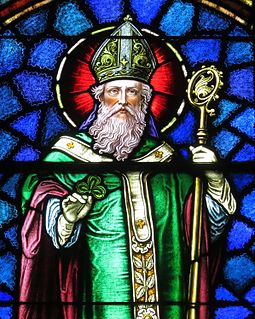A Quote by C. S. Lewis
We were made not primarily that we may love God, but that God may love us.
Related Quotes
The problem of reconciling human suffering with the existence of a God who loves, is only insoluble so long as we attach a trivial meaning to the word "love", and look on things as if man were the centre of them. Man is not the centre. God does not exist for the sake of man. Man does not exist for his own sake. "Thou hast created all things, and for thy pleasure they are and were created." We were made not primarily that we may love God (though we were made for that too) but that God may love us, that we may become objects in which the divine love may rest "well pleased".
The whole story of creation, incarnation, and our incorporation into the fellowship of Christ's body tells us that God desires us, as if we were God, as if we were that unconditional response to God's giving that God's self makes in the life of the Trinity. We are created so that we may be caught up in this, so that we may grow into the wholehearted love of God by learning that God loves us as God loves God.
Again and again it astonishes us that God makes himself a child so that we may love him, so that we may dare to love him, and as a child trustingly lets himself be taken into our arms. It is as if God were saying: I know that my glory frightens you, and that you are trying to assert yourself in the face of my grandeur. So now I am coming to you as a child, so that you can accept me and love me.
If the immutable heart can be grieved by the puppets of its own making, it is Divine Omnipotence, no other, that has subjected it, freely, and in a humility that passes understanding. If the world exists not chiefly that we may love God, but that God may love us, yet that very fact, on a deeper level, is so for our sakes. If He who in Himself can lack nothing chooses to need us, it is because we need to be needed.
Grace is more than mercy and love. It super-adds to them. It denotes, not simply love, but the love of a sovereign, transcendent Superior. One that may do what He will. That may wholly choose whether He will love or no. Now God, who is an infinite Sovereign, who might have chosen whether ever He would love us or no; for Him to love us, this is Grace.
Why pray? Evidently, God likes to be asked. God certainly does not need our wisdom or our knowledge, nor even the information contained in our prayers ("your Father knows what you need before you ask him"). But by inviting us into the partnership of creation, God also invites us into relationship. God is love, said the apostle John. God does not merely have love or feel love. God is love and cannot not love. As such, God yearns for relationship with the creatures made in his image.
A good end cannot sanctify evil means; nor must we ever do evil, that good may come of it... It is as great presumption to send our passions upon God's errands, as to palliate them with God's name... We are too ready to retailiate, rather than forgive, or gain by love and information. And yet we could hurt no man that we believe loves us. Let us try then what Love will do: for if men did once see we love them, we should soon find they would not harm us. Force may subdue, but Love gains: and he that forgives first, wins the laurel.
God’s love sets us free from the need to seek approval. Knowing that we are loved by God, accepted by God, approved by God, and that we are new creations in Christ empowers us to reject self-rejection and embrace a healthy self-love. Being secure in God’s love for us, our love for Him, and our love for ourselves, prepares us to fulfill the second greatest commandment: To love our neighbor as ourselves.
God notices you. The fact is he can't take his eyes off of you. However badly you think of yourself, God is crazy about you. God is in love with you. Some of us even fear that someday we'll do something so bad that he won't notice us anymore. Well, let me tell you, God loves you completely. And he knew us at our worst before he ever began to love us at all. And in the love of God there are no degrees, there is only love.
False religion may prevail, iniquity may abound, the love of many may wax cold, the cross of Calvary may be lost sight of, and darkness, like the pall of death, may spread over the world; the whole force of the popular current may be formed to overthrow the people of God; but in the hour of greatest peril the God of Elijah will raise up human instrumentalities to bear a message that will not be silenced.
Jesus says God is love. I would like to change it. I would like to say love is God. When you say God is love, love is only one of the qualities of God; he may have other qualities: wisdom, justice, etcetera. To me, love is God; godliness is only one of the qualities of love. There is no other God than the fragrance of love. But the fragrance can arise only in deep meditation.
Just as God's love to us believers, his children, is unalterably the same, whatever may be the manifestations of that love; and as his peace with us is the same, however much our peace may be disturbed; so it is also with regard to our being in fellowship or partnership with him: it remains unalterably the same so far as God is concerned.


































